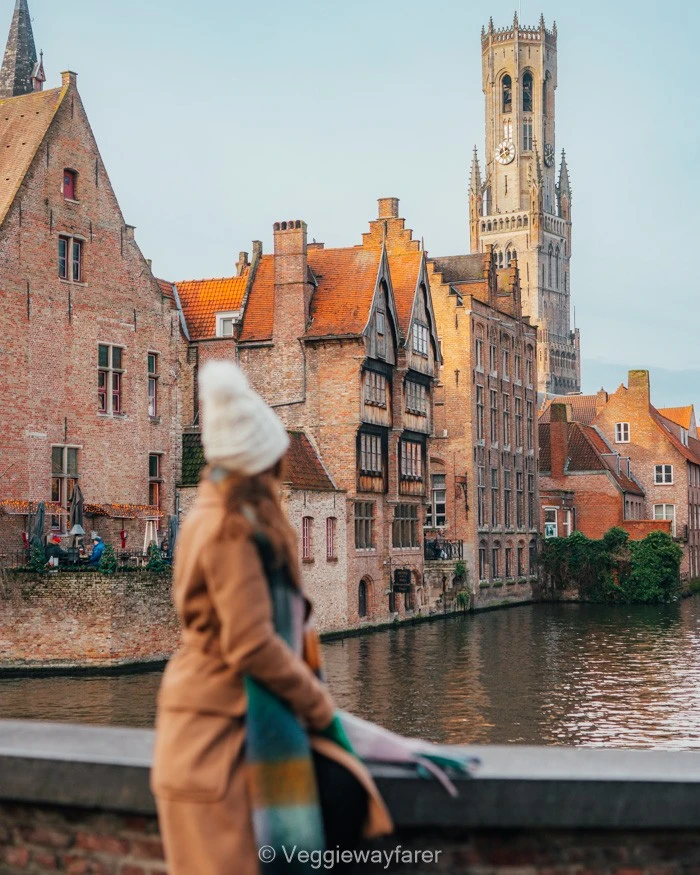In an era where wanderlust meets a heightened sense of global responsibility, the art of travel demands a delicate balance. Conscious travel isn’t just a trend; it’s a profound commitment to treading lightly on the planet, enriching local communities, and embracing the tapestry of world cultures with open arms and hearts.
I had the extraordinary privilege of having a pair of parents who quite simply packed up their three kids and schlepped them to the four corners of the earth. This meant I was submerged in the many sights, smells, and sounds of different cultures from a very young age.
These many adventures sparked a veritable love affair with travel. Yet it was not until I spent a year living in China with a host family that the concepts of conscious and sustainable travel really took root My host mother loved to travel we bonded over this shared passion and started exploring the country together. We ate, slept, and traveled very locally, venturing into places few laowai (foreigners) had ever been.
Please note: This post contains affiliate links, meaning I may earn a commission if you purchase by clicking a link (at no extra cost to you). Learn more.


What Does Conscious Travel Mean
The United Nations World Tourism Organization highlights a significant issue within the realm of global travel and tourism, pointing out that this industry is responsible for approximately 5% of all global emissions. However, the environmental impact of travel extends far beyond the carbon emissions associated with flying. The moment a traveler steps off the plane, every action taken can leave a lasting imprint on the destination, for better or worse.
Conscious travel is an approach to tourism that emphasizes mindfulness and intentionality in every aspect of the journey. It encourages travelers to consider the long-term effects of their actions on both the environment and the local communities they visit. This form of tourism is not merely about reducing one’s carbon footprint but about fostering a deep, positive impact.
Drawing parallels with ecotourism and sustainable tourism, conscious travel challenges travelers to make informed choices that prioritize the well-being of local communities, the preservation of natural habitats, and the support of local economies over convenience or immediate gratification.

10 Conscious Travel Tips
1. Plan with Purpose
Embarking on a journey with intentionality is the cornerstone of conscious travel. This means diving deep into the heart of a destination before you even pack your bags. It’s about choosing locales where your visit can shine a light on hidden stories, support recovery from over-tourism, or contribute to conservation efforts.
Do your research before you head out. Read various travel blogs, pick up a copy of Lonely Planet, or browse through CN Traveler to get inspiration. I will pin various locally run stores, experiences and hotels on Google Maps before every trip.
2. Embrace Slow Travel
Slow travel is an ode to the unhurried journey, inviting us to savor each moment and landscape. This approach champions quality over quantity, weaving deep connections with local cultures and communities. Slow travel teaches us that the richest experiences often come from the little moments in between.
This will always be the reason why I opt to choose a scenic train ride over a hurried flight, a leisurely bike ride as opposed to a jam-packed metro, or a morning spent in the company of local artisans to pick up locally made souvenirs.


3. Prioritize Eco-Friendly Transportation
Conscious travel advocates for embracing greener paths, be it the rhythmic chug of a train, the shared stories of a public bus, or the quiet hush of a bike lane. Transportation is a significant component of travel’s environmental impact, with the aviation industry contributing 2.5% to the global CO2 emissions and road transport a whopping 11.9%
If you cannot avoid flying, try and offset your CO2 emission via Gold Standard, Carbonfund, or Terrapass. Book train or bus tickets via the Omio Platform.
4. Support Local Economies
The heart of conscious travel beats strongly within local markets, quaint cafés, and the hands of street artisans. I love choosing accommodations that tell a story, dining in eateries using local and seasonal products, and bringing home treasures that were lovingly made by local artisans.
Supporting local economies is about advocating for a world where tourism enriches communities, sustains traditions, and fosters economic resilience, the three key pillars of sustainable tourism.


5. Choose Sustainable Accommodations
Hunkering down into a locally run, eco-minded accommodation is one of the most impactful things you can do as a traveler. Choosing to spend the night in a cozy B&B means you have the added benefit of getting a local’s insights and tips for things to see & do.
Alternatively, you can look into booking a Green Key Hotel. This certificate is awarded to accommodations that have proven to excel in the field of environmental responsibility and sustainable operation within the tourism industry.
6. Respect Cultural Norms and Traditions
To tread the path of a conscious traveler is to eagerly learn from new cultures, rather than impose our own cultural biases and ideas on others. It is to revel in cultures and traditions that paint our world with diversity, to be open to other ideas even if they do not coincide with our own beliefs.
I will never forget the deep conversations I had in Iran about the role of religion with local friends or sharing a maté in Argentina after a strenuous hike. To quote Mark Twain “Travel is fatal to prejudice, bigotry, and narrow-mindedness, and many of our people need it sorely on these accounts. Broad, wholesome, charitable views of men and things cannot be acquired by vegetating in one little corner of the earth all one’s lifetime.”. Truer words were never spoken.


7. Reduce, Reuse and Recycle
This is where the essence of conscious and sustainable travel overlap: reduce, reuse, and recycle. Practically it means a commitment to use less single-use plastic, to thrift rather than purchase new and to seek out recycling bins with the same enthusiasm as landmarks. This principle guides us towards a future where travel leaves no trace, where the memories we carry home are the only evidence of our passage.
8. Be Mindful of Wildlife Interactions
In the realm of conscious travel, encounters with wildlife are rare and always laced with respect for the natural world. It’s about choosing experiences that honor the wildness of creatures, where observation respects distance and habitats remain undisturbed.
The objective must be to fuel conservation efforts and support sanctuaries, not get an Instagram snapshot as is unfortunately the case for many elephant sanctuaries in Thailand. Read the reviews of fellow travelers before going and always ask the question “Does this sanctuary put the welfare of the animal first or is it more about catering to the experience of the tourists?”.


9. Participate in Responsible Volunteering
Volunteering during your travels is a wonderful way to connect with a local community and to make a positive change. The key to respectful volunteering is to select a program that enriches both you, the giver, and the receiver or the local community. Organizations like Worldpackers do a great job connecting responsible hosts with potential volunteers.
10. Leave No Trace
This should be the mantra of every traveler, conscious or not. It’s a philosophy that guides us to wander with wonder, leaving behind nothing but the lightest of footprints. Practically it means packing out what we bring in, staying on marked trails, and minimizing our impact on the natural world.

Why We Should Travel More Consciously
The travel and tourism sector is a powerhouse, generating nearly $2.9 trillion globally. However, the distribution of this wealth is uneven, and not all communities benefit equally from tourism dollars. In some cases, tourism can inadvertently harm local communities, leading to inflated prices that push residents out of their homes and markets.
Moreover, the employment opportunities created by tourism can be precarious and poorly paid, often benefiting large, foreign corporations that may not adhere to sustainable practices. This means that the economic benefits of tourism frequently bypass the very communities that host tourists.
By choosing to travel in a way that respects and enriches local communities and ecosystems, we not only enhance our own travel experiences but also contribute to a more sustainable and equitable world. This shift in perspective and behavior can lead to a transformative impact, proving that thoughtful travel is not just beneficial but essential for the health and vitality of our planet and its diverse cultures.

MORE TRAVEL RESOURCES FOR SUSTAINABLE & CONSCIOUS TRAVEL
SUSTAINABLE TRAVEL: What is sustainable tourism & why is it important
ECOTOURISM: What is ecotourism and why is it important
THAILAND: Guide to ethical elephant sanctuaries in Thailand
CURACAO: Alternative things to do in Curaçao
EUROPE: 20 Epic train journeys across Europe
ITALY: Sustainable guide to South Tyrol (Dolomites)
NETHERLANDS: 6 Biking trips around Amsterdam
Tip for Conscious Travel – Pin it










0 Comments